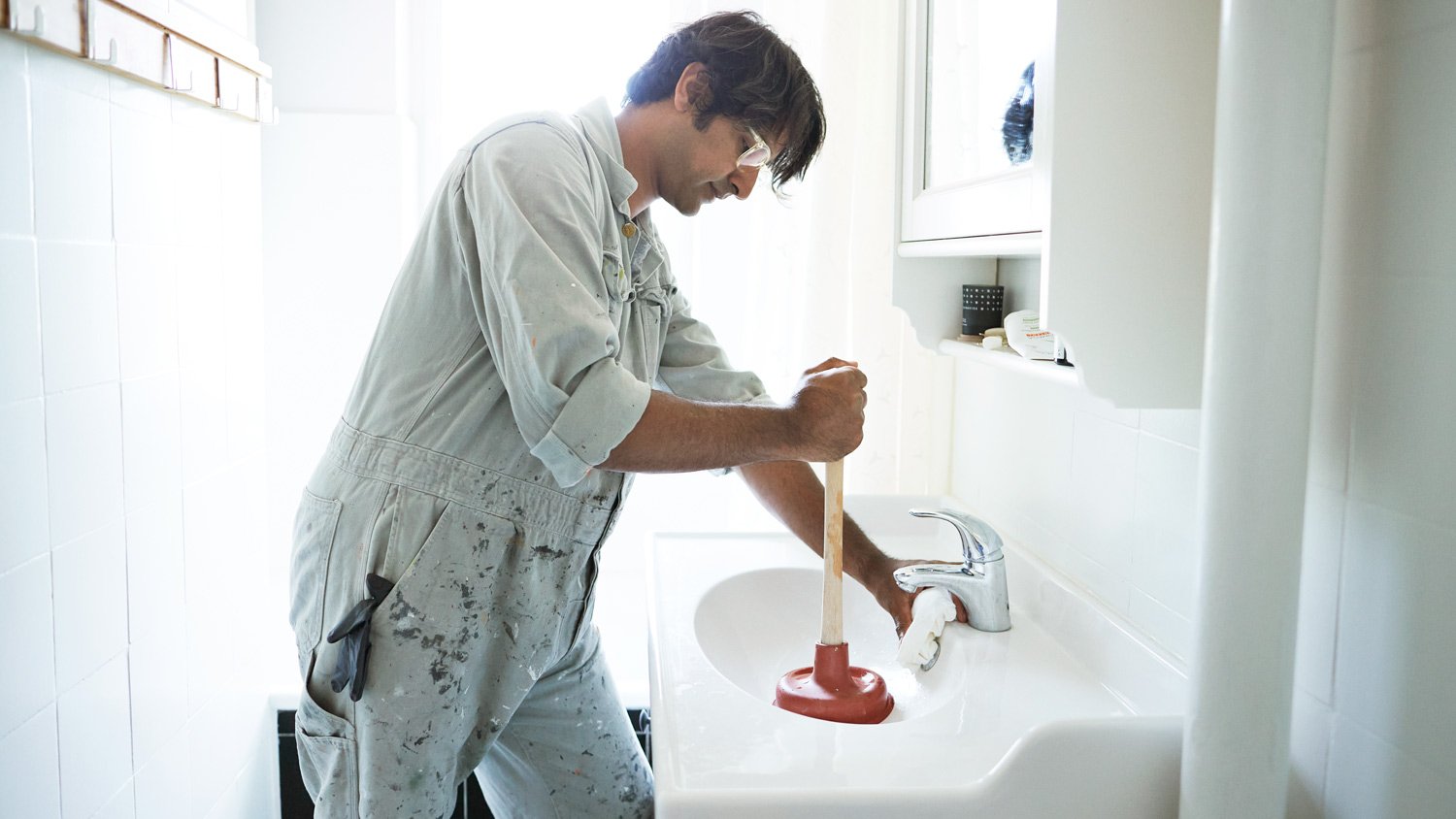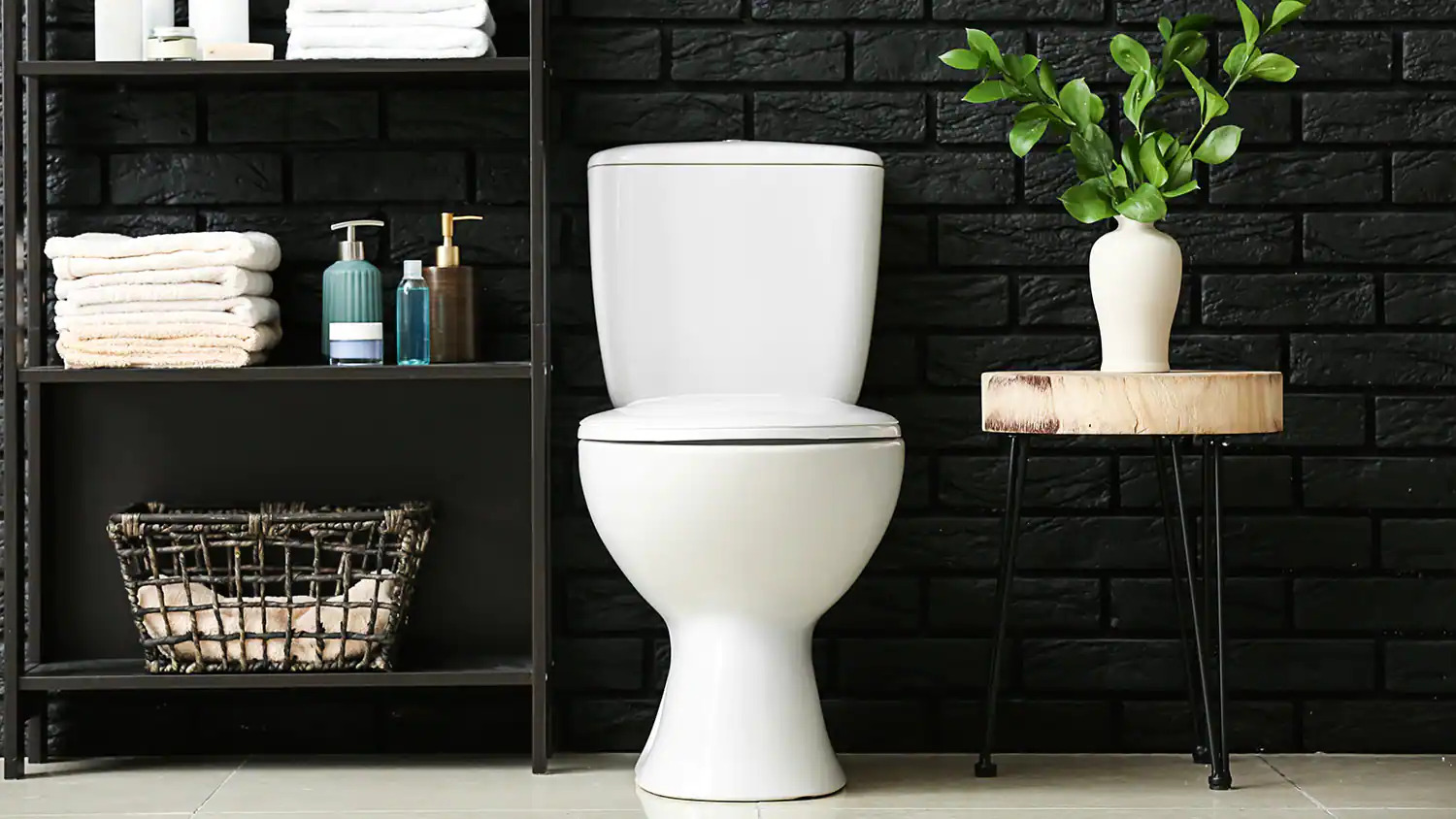
A small septic tank system is ideal for spaces with minimal needs, such as a one-to-two-bedroom apartment or guest house. A small septic tank contains 750 or 1,000 gallons. We’ll cover everything that factors into your small septic system cost here.
Understand the inner workings of your home and gain peace of mind


All drains in your house are connected at some point to expel your home’s wastewater.
Indications of a connection problem include odors, crossed backups, and slow drainage.
Clogs, improper installation, and general wear can all be culprits of a connection issue.
Some plumbing issues have DIY repairs, but others may require help from the pros.
When it comes to the inner workings of your home, the plumbing system is often out of sight and out of mind. It plays a big role in your daily life, though, ensuring clean water supply and proper waste disposal. If you’ve ever wondered, "Is my kitchen sink connected to my bathroom sewage pipe?" you’re not alone. Let’s dive into the intricacies of household plumbing to shed light on this often perplexing question.
Before we tackle the connection between your kitchen sink and the bathroom sewage pipe, let's understand some fundamental home plumbing concepts. Household plumbing is a complex network of pipes and fixtures designed to ensure the delivery of clean water to your home and the efficient removal of wastewater from it.
One critical aspect is the sewage system, which plays a vital role in carrying away used water from sinks, showers, toilets, and appliances. This system uses a combination of gravity and a series of interconnected pipes to transport your wastewater either to a municipal sewage treatment facility or to a septic tank buried on your property.
The connection between your kitchen sink and bathroom sewage pipe might not be immediately obvious, but it does exist. Both your kitchen sink and bathroom fixtures, like toilets and showers, are connected to the main sewage system of your house (not directly to one another, however). This interconnected network ensures that wastewater is safely transported away from your home.
Sometimes, people may encounter plumbing problems that make them wonder about the integrity of this connection. Here are some common issues that could indicate an issue with the link between your kitchen sink and bathroom sewage pipe:
Foul odors: If you notice unpleasant odors coming from your bathroom drains or kitchen sink, it could be a sign of a connection problem.
Slow drainage: Water taking longer to drain than usual could indicate a blockage or faulty connection.
Backups: The appearance of sewage backups from your kitchen sink in the bathroom fixtures or vice versa is a clear sign that something is amiss.
Gurgling sounds: Audible gurgling noises when water is draining can also suggest an issue.

Understanding the causes of plumbing problems between the kitchen sink and the bathroom sewage pipes can help you prevent them in the first place. Here are some common reasons why your kitchen sink and bathroom sewage pipe connection might malfunction:
Over time, pipes and connections can deteriorate, leading to leaks or blockages. Older homes are more susceptible to this issue.
If the plumbing system was not installed correctly from the beginning, it can lead to problems down the line. Poorly aligned pipes or improper connections can cause drainage issues.
Accumulated grease, food particles, hair, and other debris can lead to clogs in the main sewer line and elsewhere in the septic system, affecting the connection between your kitchen sink and bathroom sewage pipe.
Maintaining the connection between your kitchen sink and bathroom sewage pipe is essential for several reasons. First of all, it helps to keep unpleasant odors at bay since a well-maintained connection ensures that wastewater is properly transported, preventing sewage odors from permeating your home.
Connection issues between this link can lead to nasty leaks and water damage, which can be costly to repair and may even create fumes that pose health risks. Keeping the connection intact can help prevent this type of damage.
While some plumbing problems require professional intervention by a local sewer company, there are steps you can take to check and repair the connection between your kitchen sink and bathroom sewage pipe.
Inspect the P-trap: This is a curved section of pipe under your sink. Check for P-Trap leaks or blockages in this area.
Clear clogs: Use a plunger or a drain snake to clear minor clogs in the pipes.
Check for leaks: Look for any signs of leaks around the connections and tighten them if necessary.
Schedule regular maintenance: Implement a routine maintenance schedule to keep your plumbing in excellent condition.
To ensure a long-lasting and trouble-free connection between your kitchen sink and bathroom sewage pipe, consider the following maintenance tips:
Regularly clean drains: Use drain cleaners or natural solutions like vinegar and baking soda to keep drains free from debris.
Dispose of grease properly: Avoid pouring grease down the sink, as it can solidify and cause blockages.
Install drain screens: Placing screens over drains can catch hair and debris before they enter the pipes.
From average costs to expert advice, get all the answers you need to get your job done.

A small septic tank system is ideal for spaces with minimal needs, such as a one-to-two-bedroom apartment or guest house. A small septic tank contains 750 or 1,000 gallons. We’ll cover everything that factors into your small septic system cost here.

Need to know what sewer line replacement costs in Austin, TX? This guide will help you prepare to budget for sewer line replacement done by local contractors.

Size, materials, and labor all determine the costs of an ejector pump replacement. Follow this guide to help you find the right ejector pump for your budget.

A full septic tank can cause health issues and costly repairs. Look out for these top seven warning signs your septic tank is full.

Got a home construction project coming up? Here’s how to find your sewer line from house to street so you can avoid catastrophe.

In order to function properly, your septic tank needs to be regularly inspected and emptied. How often you should get your septic tank inspected depends on a few factors.